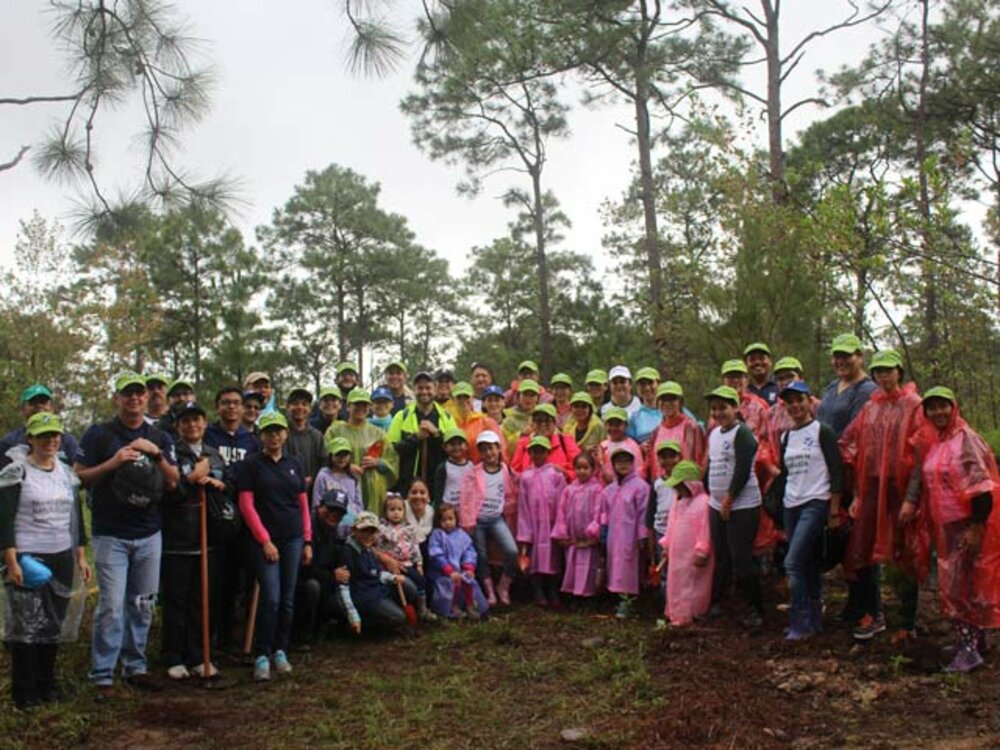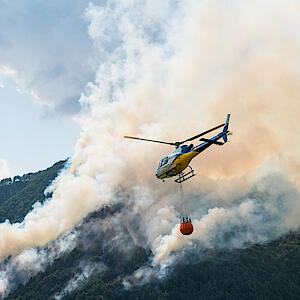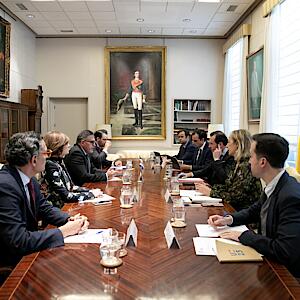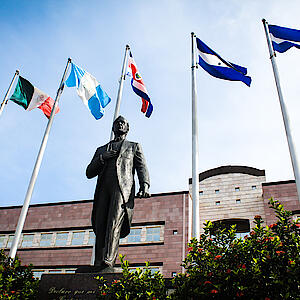CABEI volunteers join planting day

In partnership with CEPUDO and the National Parks Foundation, CABEI contributes to the voluntary offset of the carbon footprint.
Tegucigalpa, June 11, 2018.- Volunteers, relatives and friends of the employees of the Central American Bank for Economic Integration (CABEI) participated in the planting of 750 trees in a reforestation zone that included three blocks of Cerro El Picacho in the Honduran capital.
This is the eighth edition of reforestation that coincides with the launch of the institution's Environmental Management System (EMS) this year. With these actions, the Bank intends to renew its commitment to protecting the environment and its continuous improvement.
The plantation contributes to reforesting protected natural areas, raising awareness among employees and compensating for the environmental impact generated by the Bank. In addition, the initiative had a double aspect: one is environmental and the other serves to promote principles such as companionship and teamwork.
This activity contributes to reducing the environmental footprint generated by the bank's operation, where one of the main environmental impacts is paper consumption, which in 2017 totaled 2,815 reams, equivalent to 169 trees (9 trees less than the previous year).
The initiative is replicated annually in Central American countries, where CABEI volunteers are mobilized to plant trees in protected areas and carry out other work in support of the environment.
Other Green Initiatives
In each of the CABEI buildings in the region, different activities are carried out such as: carbon neutrality certification in Costa Rica, the incorporation of LEED criteria in new buildings, and the installation of photovoltaic plants in El Salvador and Honduras that produce up to 17% of the energy consumption of both offices. Each of them represents an important contribution to the environment and serves as a reference point for other entities to join in.
These initiatives contribute to United Nations Development Goals #7 (Affordable and Clean Energy); #12 (Responsible Production and Consumption).








